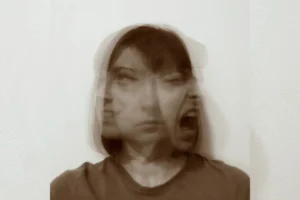
Polling began at 7 AM across all 288 Assembly constituencies in Maharashtra and will continue until 6 PM. Of the 1,00,186 polling stations set up, 42,604 are in urban regions while 57,582 cater to rural areas.
The elections pit the ruling MahaYuti alliance, comprising BJP, Shiv Sena, and the Ajit Pawar-led NCP faction, against the Maha Vikas Aghadi (MVA), which includes Congress, Shiv Sena (UBT), and the Sharad Pawar-led NCP faction.
Over 9.70 crore eligible voters, including 5.22 crore men and 4.69 crore women, will likely cast their votes.
Pune district boasts the highest number of registered voters.
A total of 4,136 candidates, including 363 women and two others, are in the electoral fray, vying for seats in the state legislature.
High-Profile Candidates In The Spotlight
Several key leaders are contesting in this election. Notable names include Chief Minister Eknath Shinde, Deputy Chief Ministers Devendra Fadnavis and Ajit Pawar, BJP state president Chandrashekhar Bawankule, Congress state president Nana Patole, and Shiv Sena (UBT) leader Aaditya Thackeray.
Additionaly, other prominent figures include Amit Thackeray from MNS, former Union Minister Milind Deora, and ex-Minister Amit Deshmukh.
Ajit Pawar, State Deputy Chief Minister and NCP President urged citizens to vote freely and independently, stating, “Exercise your voting right as per your conscience.”
Among early voters was RSS chief Mohan Bhagwat, who cast his ballot in Nagpur and encouraged people to fulfill their democratic duty.
Tight Security Measures
Over two lakh personnel from the Maharashtra Police, Home Guard, Civil Defense, and Central Armed Police Forces are ensuring smooth and peaceful polling through their deployment.
Additional resources from the State Armed Police Force and Reserve Police Force are also in place.
Polling Station Preparations
Dr. Kiran Kulkarni, Additional Chief Electoral Officer, confirmed that the polling stations have received an adequate number of EVMs and VVPAT machines.
The state has 2,21,600 Ballot Units (221%), 1,21,886 Control Units (122%), and 1,32,094 VVPATs (132%), ensuring smooth operations at the 1,00,186 polling booths.
He further asserted, “Taking into consideration the apathy of the voters in the urban areas especially from Mumbai, Thane and Pune, the state election machinery conducted various campaigns to increase the voting percentage. A total of 1,181 polling stations have been set up in high-rise buildings/cooperative housing society complexes in the cities. Also, 210 polling stations have been set up in slum areas. The total number of sub-polling stations is 241.”
Sensitive Polling Stations & Vigilance
Dr. Kulkarni explained that sensitive polling stations fall into two categories: those related to expenditure and those concerning security.
“Incidentally, there is not a single vulnerable polling station in the state from the security point of view. In the case of expenditure polling stations, the state election machinery has given due attention,” he further asserted.
Code Of Conduct Enforcement
Dr. Kulkarni further explained that during the election period, over 8,500 complaints lodged through the C-Vigil app, with nearly all resolved promptly.
“The state election machinery has done a great job in the seizure of cash, liquor, freebies and other things with Rs 673 crore. There has been a five-fold increase in seizures compared to the seizures done during the 2019 Assembly elections,” he added.
Dr. Kulkarni reported registering 532 FIRs during the code of conduct period. Among these, 210 involve violations of the model code, 63 pertain to social media issues, and the remaining 259 cover various other concerns.
Also Read: Second Phase Of Jharkhand Polls Kicks Off Across 12 Districts
To read more such news, download Bharat Express news apps


















